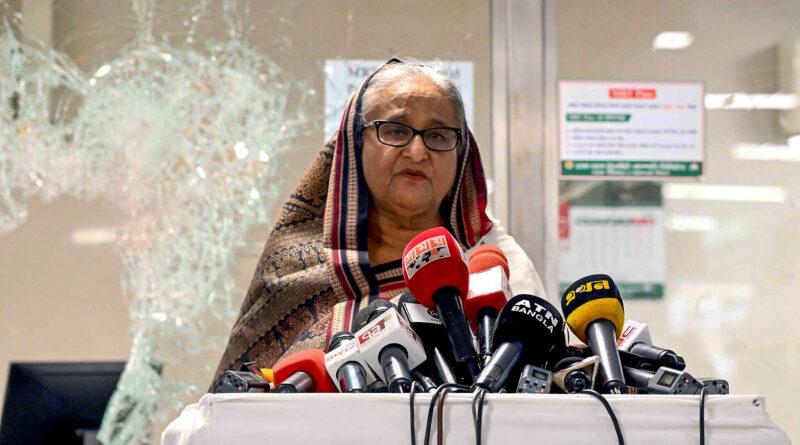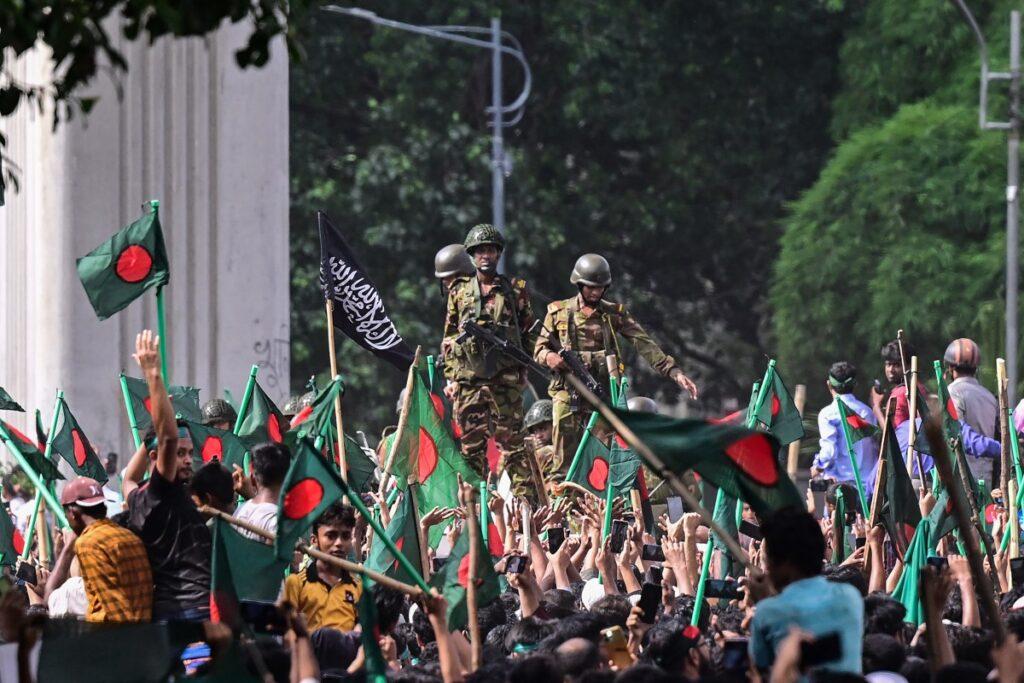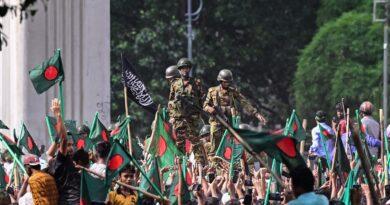Bangladesh PM Sheikh Hasina Resigned, to form Interim government: Army Chief
Bangladesh Prime Minister Sheikh Hasina resigned and left the country, while Army Chief Waqar-ul-Zaman has said that an interim government will be established.
The French news agency AFP has confirmed the departure of Sheikh Hasina Wajid concerning sources. The Army Chief while holding a press conference said that the Prime Minister has resigned, and we will form an interim government.
Prime Minister Sheikh Hasina Wajid left her official residence in the capital Dhaka amid a wave of violent protests in Bangladesh on Monday.
The news agency AFP, citing sources close to the prime minister, has said that “Sheikh Hasina and her sister, the prime minister, have left the official residence to move to a safe place.”
Sources say that she wanted to record a speech, but she did not get the opportunity.
“There is a possibility,” a senior adviser to the Bangladeshi prime minister told AFP when asked about his resignation.
Bangladesh army chief Waqarul Zaman will also address the nation this afternoon, a Bangladeshi army spokesman told AFP but did not give further details.
Around 100 deaths in the violent demonstration
Earlier in Bangladesh, thousands of protesters demanding the resignation of Prime Minister Sheikh Hasina clashed with pro-government crowds on Sunday, killing around 100 people and injuring hundreds.

According to the news agency Associated Press, the daily newspaper ‘Protham Alu’, published in the Bengali language of Bangladesh, said that 95 people, including 14 police officers, were killed in the clashes. Channel 24 news outlet reported 85 deaths.
The army on Sunday evening announced a new curfew for an indefinite period in the country’s major cities, including the capital Dhaka.
The protesters are calling for the resignation of Prime Minister Sheikh Hasina Wajid after protests started last month by students to end the quota system for government jobs. The protests turned violent in which more than 200 people were killed.
As violence broke out again, Hasina said the protesters engaged in “vandalism” and destruction were no longer students but criminals, and said people should deal with them with an iron hand.
The protesters are demanding the resignation of Prime Minister Sheikh Hasina, while the Prime Minister is accusing them of ‘sabotage’.
The government has shut down mobile phone service and the internet to contain the unrest, and access to Facebook and messaging apps, including WhatsApp, is not possible.
On Sunday, Junior Minister of Data and Broadcasting Muhammad Ali Arafat said that different administrations have been suspended to assist with forestalling viciousness.
The public authority has proclaimed an occasion from Monday to Wednesday while the courts will stay shut endlessly.
Last month, students started a protest demanding an end to the quota system in government jobs, which later turned into violent protests and has so far resulted in over 200 deaths.
Amid the new rush of viciousness, Sheik Hasina said that the dissenters associated with “defacing” and obliteration were no longer understudies except for lawbreakers.
You May Also Like To Read:
The ruling Awami League says the demand for the Prime Minister’s resignation shows that the main opposition Bangladesh Nationalist Party and the now-banned Jamaat-e-Islami have taken over the protests.
In Dhaka’s Uttara area, police used tear gas to disperse hundreds of people who had blocked a major highway.
Dissidents went after houses and stripped the local area government assistance office nearby, where many decision party laborers took up positions.
Eyewitnesses say that a few explosions of improvised explosive devices and gunshots were heard. 20 people were shot in the eastern region.
At least 18 people were killed in the northwestern district of Sirajganj. According to the police headquarters in Dhaka, this number includes 13 police officers who lost their lives in the attack on the police station by the protesters.
Another officer died in the eastern Comilla district, police said. Five people were killed in clashes between supporters of Hasina Wajid and protesters in the Fani district of southeastern Bangladesh.
At least 11,000 people have been arrested in recent weeks in Bangladesh. Schools and universities across the country were closed as a result of the unrest, while authorities at one point imposed a curfew and ordered a shoot-on-sight.
The protesters called for ‘non-cooperation’ with the government, urging people not to pay taxes or utility bills and not to come to work on Sunday, which is a working day in Bangladesh. Offices, banks and factories opened but commuters in Dhaka and other cities faced difficulties in getting to work.




